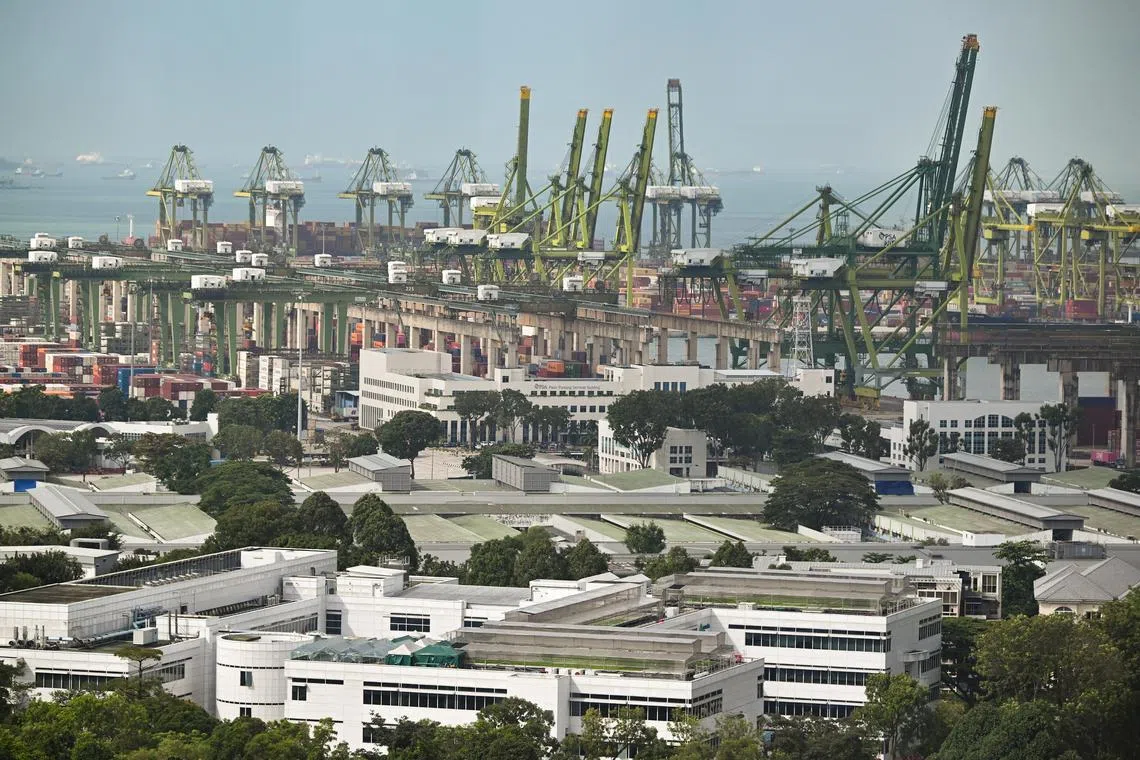Digitalisation will make international trade faster and cheaper: Iswaran
Sign up now: Get ST's newsletters delivered to your inbox

Singapore has concluded digital economy agreements with five countries – Chile, New Zealand, Australia, Britain and South Korea.
ST PHOTO: LIM YAOHUI
SINGAPORE – Global trade linkages and connectivity can be strengthened through digitalisation, which will make international trade faster, more secure and cheaper.
And having common standards across jurisdictions will boost efficiency and make worldwide trade interoperable, said Minister-in-charge of Trade Relations S. Iswaran.
Speaking at the International Chamber of Commerce (ICC) Future Trade Forum on Wednesday, he added that the pandemic has taught the importance of trade linkages and connectivity.
Hence, it is important for like-minded partners to work together to strengthen the international rules-based trading order at all levels – bilateral, regional, plurilateral or multilateral, he noted.
Singapore has concluded digital economy agreements with five countries
“As articulated in our Trade 2030 strategy, digitalisation is integral to Singapore’s plans to strengthen our value proposition as an international trading hub,” said Mr Iswaran.
He added that the agreements will allow companies to engage in seamless cross-border digital trade.
This becomes more important as global trade volumes are expected to fall in 2023 due to significant headwinds such as geopolitical frictions, persistent inflation and lower demand, he noted.
The United Nations projects that worldwide trade hit a record US$32 trillion (S$43 trillion) in 2022.
The ICC Digital Standards Initiative on Wednesday also released its first set of digitalisation guidelines for seven commonly used trade and supply chain documents, including warehouse receipts and Customs declarations.
Along with the guidelines, it also issued standards for technologies for market participants of the digital trade ecosystem.
Mr Gerard Hartsink, chair of the Initiative’s industry advisory board, said: “Digital trade requires common standards, taxonomies, and a trusted ecosystem for managing and sharing the massive amounts of data required by all market participants involved in the international supply chains and for the trade finance processes. With this work, we aim to substantially contribute to this quest, together with the many industry partners who have been critical to our journey.”
The forum will also see ICC’s Digital Standards Initiative, the Asia Global Institute and Milken Institute launch a global trade modernisation index that assesses economies’ readiness for digital trade across the public and private sectors.
The two-day forum at Marina Bay Sands started on Wednesday and is expected to be attended by 300 government officials, practitioners and business leaders from various fields including trade, finance, technology and supply chain.



